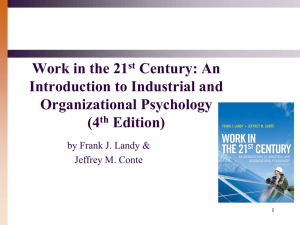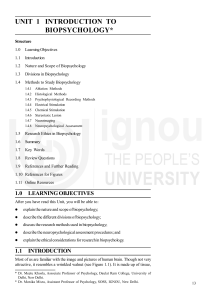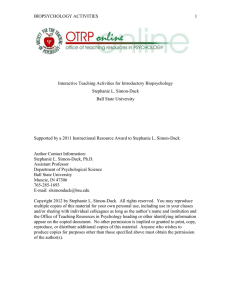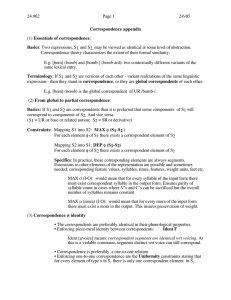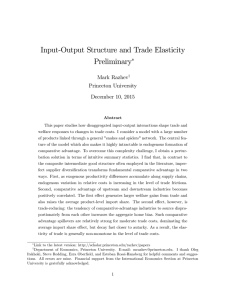Biopsychology in the Workplace
advertisement
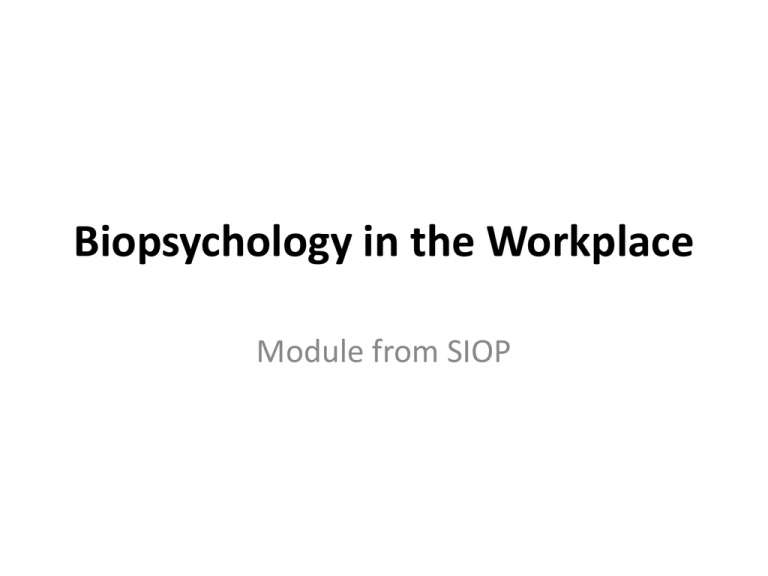
Biopsychology in the Workplace Module from SIOP Biopsychology at Work • Biopsychology is a subfield of psychology that emphasizes the integration of human biology and psychology (body and mind together). • This means considering: – How the body functions physiologically and neurologically – How our mind and body operate together in sensation and perception, and responding to stimuli in the world around us Why Relevant in the Workplace? • Workers are human beings and therefore also biological organisms • We all have complex brains and central nervous systems, which enable and complicate our day-to-day functioning: – Biologically we may be able to explain body mechanisms that are associated with reward, pleasure, pain, memory, etc. – Other psychological aspects also likely factor into how we react to stimuli in our environments Practicing Biopsychology • Expertise in biopsychology requires specialized training that most I-O psychologists do not have. – Most good I-O graduate programs do provide at least one course in biological processes associated with human functioning (part of licensure preparation) • It is also common to forge collaborations between I-O and neuropsychology or biology researchers when applying a biopsychological perspective to issues within work organizations Example Topics • Some researchers/practitioners of I-O are more likely than others to need familiarity with biopsychological factors and issues, including: – Work-related stress and its effects on physical and psychological worker wellbeing – Worker emotions – Influence of work environment features on worker functioning – Reward and motivation Class Discussion • Do you find yourself more interested in biology or psychology? Why? • What are the benefits of integrating a biological and psychological perspective when examining human functioning within organizations? • What types of applied psychology topics are likely to involve biological and psychological components? Further Reading • Landsbergis, P. A., Schnall, P. L., Belkić, K. L., Baker, D., Schwartz, J., & Pickering, T. G. (2001). Work stressors and cardiovascular disease. Work, 17(3), 191-208. • Muraven, M., Tice, D. M., & Baumeister, R. F. (1998). Self-control as limited resource: regulatory depletion patterns. Journal of Personality and Social Psychology, 74(3), 774-89. • Panksepp, J. (1998). Affective Neuroscience: The Foundations of Human and Animal Emotions. New York: Oxford University Press.
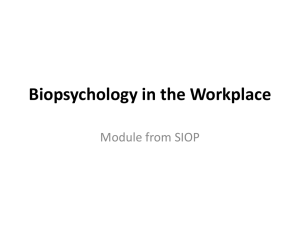

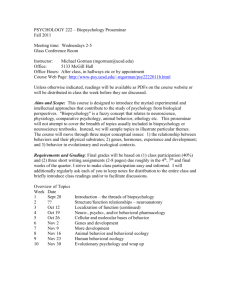

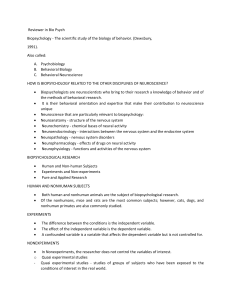
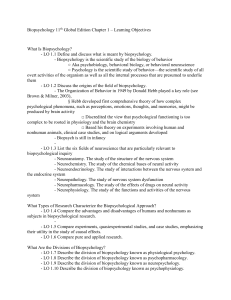
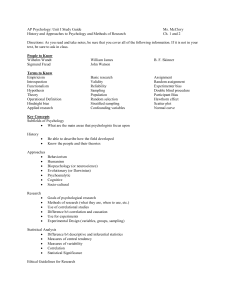
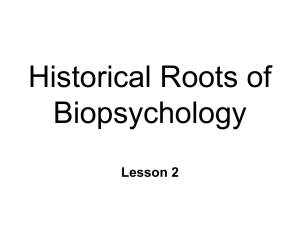
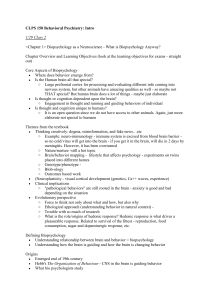

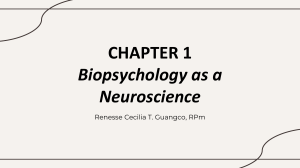
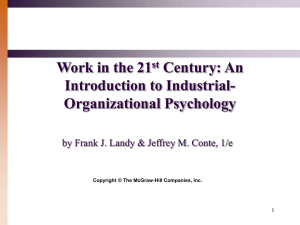
![Work_21st_Chapter_01-1rev[1]](http://s2.studylib.net/store/data/009956960_1-ad5a0557e9e671db190f0b5679e3ad21-300x300.png)
